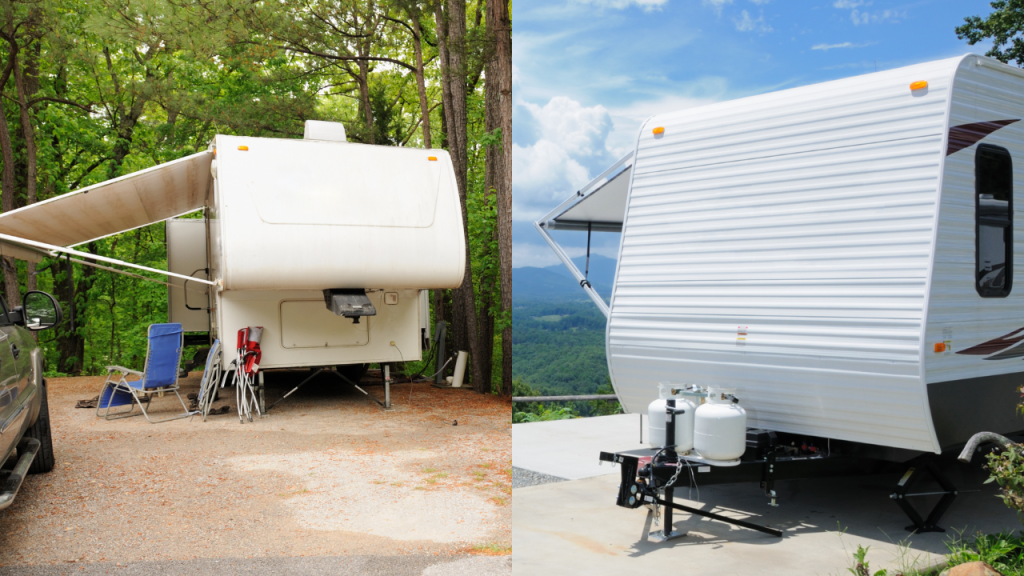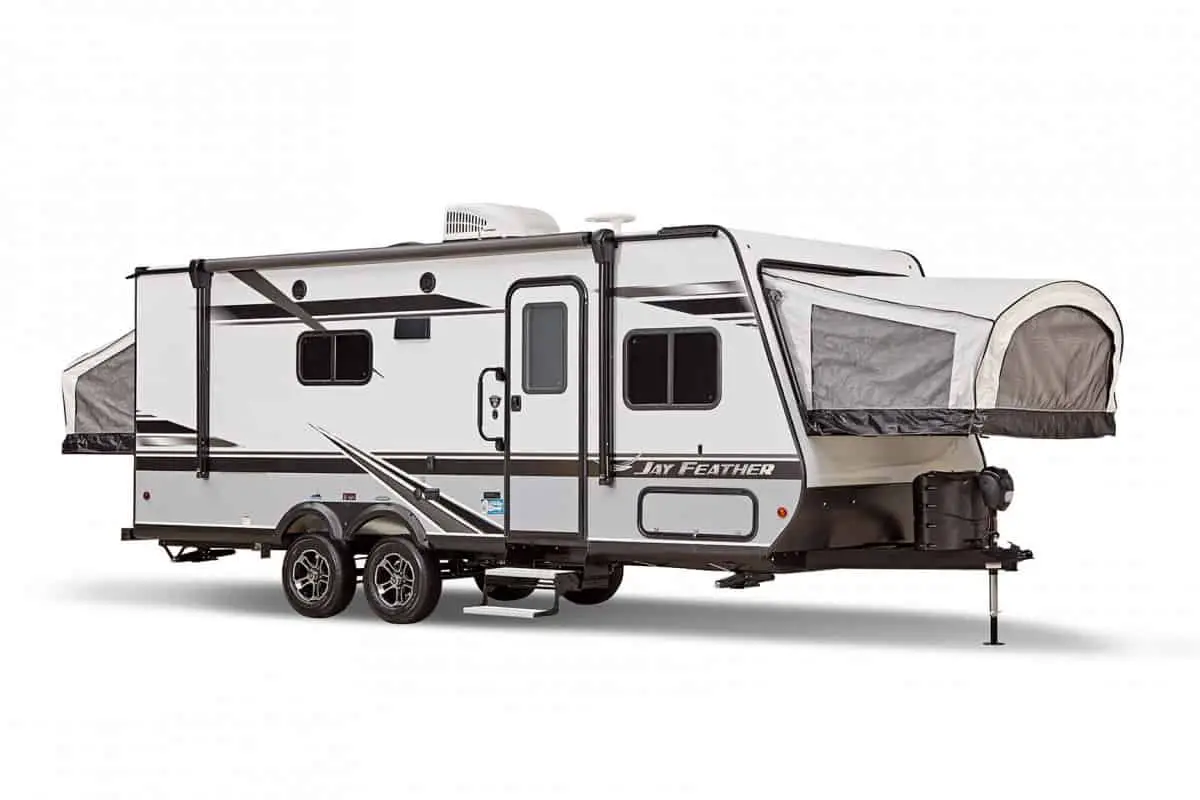
What is the Difference Between a Standard and a Lightweight Camping Trailer?
When it comes to hitting the road and exploring the great outdoors, camping trailers are a fantastic way to enjoy the comforts of home while being close to nature. If you're in the market for one, you might be wondering about the differences between a standard and a lightweight camping trailer. Well, let me tell ya, there's quite a bit to consider! First off, as their names suggest, weight is the most obvious difference. A standard trailer is, well, heavier (no surprise there), typically ranging from around 4,000 pounds to over 10,000 pounds. They're built with sturdier materials and often come packed with all sorts of amenities – think full kitchens, bathrooms with showers, and sometimes even slide-outs that increase living space. On the flip side (and here's where we need an interjection), wow! Lightweight trailers are impressively featherweight in comparison! These little guys can weigh anywhere from as little as 800 pounds up to 3,000 pounds. Because they're so much lighter—hence the name—they don't demand a heavy-duty truck or SUV to tow them. Even your average family car could do the job for some models. Now let's talk construction

How to Choose the Perfect Lightweight Camping Trailer
Choosing the perfect lightweight camping trailer for your outdoor adventures can seem daunting at first, but fear not! With a little guidance (and perhaps some trial and error), you'll be hitting the road in no time. First off, it's crucial to consider what type of adventurer you are. Do you plan on exploring rugged terrain or sticking to well-paved paths? Your destination matters as much as your journey! Now, let’s talk about size – and yes, in this case, it does matter. You don’t want something too cumbersome; after all, the goal is to find a lightweight trailer that’s easy to tow. However, make sure it's spacious enough to accommodate everyone who’ll be joining on these escapades. It's a delicate balance between comfort and convenience. Ah, weight! It’s in the name for a reason - lightweight trailers are all about being feather-light on their wheels (well not literally feather-light, but you get the idea). Check your vehicle's towing capacity before falling head over heels for a model that your car simply can't handle. This is where negation comes into play: don’t assume any car can tow any trailer – that's just asking for trouble.

What is a Lightweight Camping Trailer
Ah, the great outdoors! There's nothing quite like packing up your gear and heading out into the wilderness for an adventure under the stars. But let's be honest, not everyone is cut out for roughing it in a tent on the hard ground. That's where a lightweight camping trailer comes into play – it can seriously enhance your outdoor experiences while providing some homey comforts. So what exactly is a lightweight camping trailer? Well, as the name suggests, it's a compact and easy-to-tow trailer that's designed to be both functional and comfortable without weighing you down (literally). These trailers are built with lighter materials and usually have just enough space for sleeping quarters and sometimes even include small kitchenettes or storage areas. They're perfect for people who want to explore without being bogged down by a massive RV or motorhome. Now, why would you opt for one of these nifty little trailers? For starters, because they're so much easier to haul around! You won't need a big truck or SUV; most lightweight trailers can be pulled by regular cars or small crossovers. This means better gas mileage and less stress on your vehicle

How This One Thing Changed EVERYTHING FOREVER…
Driving down the road, you easily and positively identify an older model rv, right? there is something so very 70s or 80s about it. The whites look dingy plus, of course, it’s obvious by the design. As a side note: did you know a lot of campgrounds have a policy of no rvs 10 years or older? of course, they are trying to keep riffraff out of the park but tons of non-riffraff people have older model rvs. Most of the time, you can get around their policy by sending a photo to show you r rv won’t be falling apart will all of the features we're paying for be used? (if not, are the features we will use worth the price for a certain type of camper or would a different type of camper work just as well?) will i be comfortable pulling this type of camper up a mountain pass? will i be looking for a bigger tow vehicle by the end of this? (if so, you 're not alone!) if it looks like a fifth wheel, travel trailer, hybrid, teardrop, or soft-top tent trailer is you r best option i'm sorry we won't be able to help you . To aid you r search all of

Pros and Cons of Smaller Camp Trailers
Travel trailers and fifth wheel campers are both towable rvs. How they tow, what they cost, their floor plans, and sizes are different. There are pros and cons to both types for different rvers. Pros and Cons of RV vs Trailer There are many rv pros and cons. Below we’ll get into both the many advantages of an rv and also a few drawbacks that are worth acknowledging. So without further ado, here are some of the pros and cons of traveling in an rv. https://www.jstor.org/stable/41982581 You have a lot of choices when it comes to picking the type of rv that’s right for you and the way that you want to travel. Enamored with the idea of van life, new rvers will often consider class b motorhomes. Class b motorhomes are the smallest motorized rvs, ranging between 18 and 24-feet long. Typically built on a cargo van chassis, you’ll find many popular models on mercedes sprinter platforms. While b-vans are great for some travelers, they have their downsides. After weighing the pros and cons, you may decide that a luxury travel trailer is the better choice for the rv lifestyle you want to live.

Why a Smaller RV Might be for You | Benefits of Small RVs
Bigger isn’t always better. While the class a motorhomes that are nicer than many homes are surely impressive, they’re not for everyone. And they’re not in everyone’s price range. But not just motorhomes. Even fifth wheels are bigger and pricier than many people need. People are turning to smaller rvs for the many benefits they pack in a small but powerful punch. Smaller rvs aren’t just for people dipping a toe in the rving lifestyle anymore. Some experienced rvers are even downsizing for the benefits a smaller rv offers. First off are the cost benefits that purchasing a smaller rv offers. Oh My, There's Nothing Here! Categories motorhomes and rvs home » camping » motorhomes and rvs » class a vs class c rv: differences + pros and cons two of the most popular types of rvs are class a and class c. The best rv for you depends on a number of factors including where you plan to camp, for how long you plan to camp, the number of people you’re camping with, and your personal preference. In this guide, i’ll explain the differences and outline the pros and cons of camping in a class a vs class c

How Much Does A Small Camper Cost?
The cruiser is about as small and simple as you can get without having to make a bed each time. Cost: from $3,990 one of the most affordable little campers on the market, the cruiser combines a simple, australian-made trailer with the smallest of oztrail’s soft-floor camper tents. It’s literally the easiest soft-floor to set up, because there’s barely anything to it. Weighing just 280kg , it can be towed by just about anything. Hey, first time buyer here. I'm planning on doing a cross-country road trip (~4-6 months) with my partner and i was wondering what you see as being the pros and cons of a trailer vs camper. Cost isn't a huge issue but recouping cost after the trip is a concern. In other words, i don't mind spending a good chunk on a used setup for the trip but i sure would like to get as much of it back as possible by selling it after the trip. I don't have a truck. I really don't want to deal with mechanical issues. https://en.wikipedia.org/wiki/Teardrop_trailer The other pro of choosing a camper for your full-time adventure is that most of them cost less